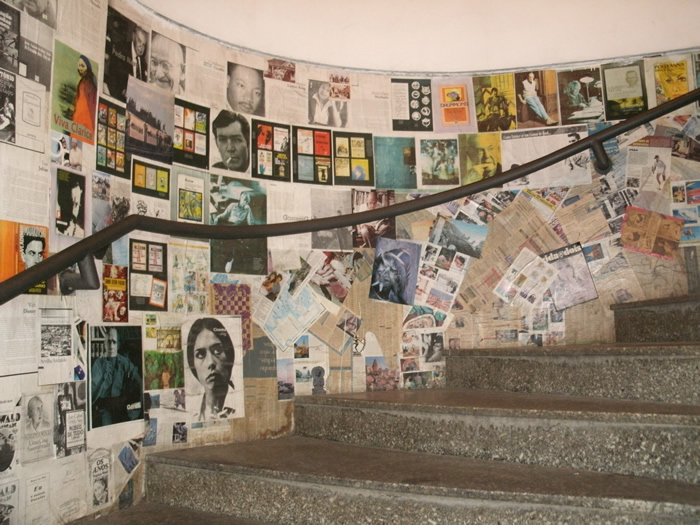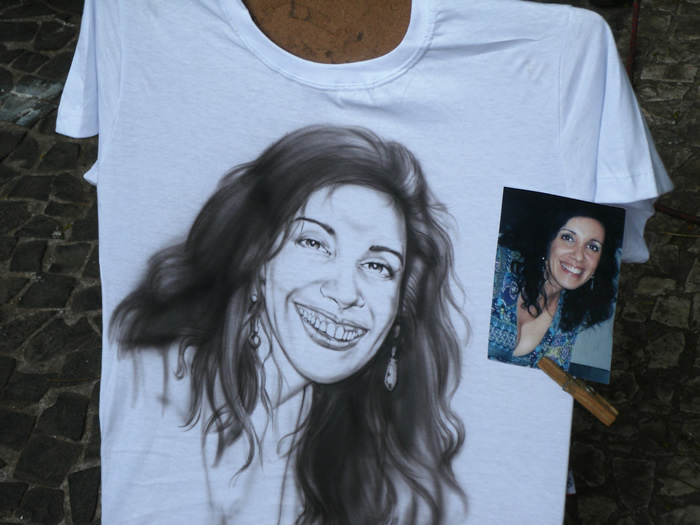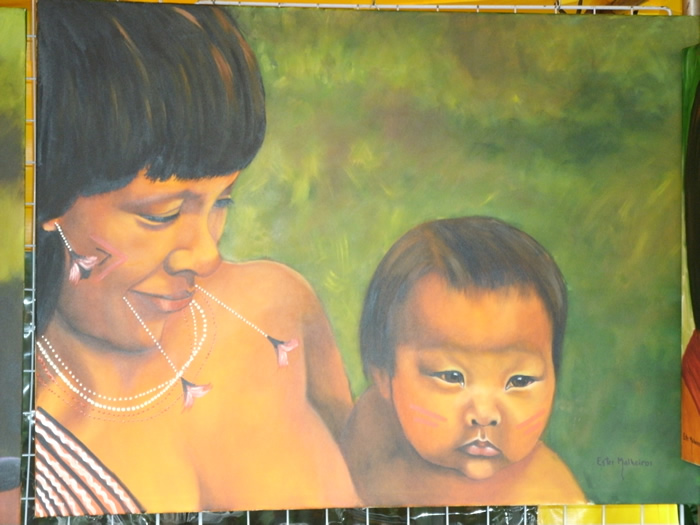Archive for 2010
Media and the Constitution reform process in Zimbabwe
Wednesday, November 24th, 2010 by Lenard KamwendoAt a media roundtable discussion on “Constitution in Transition: The Role of the Media“, which was facilitated by Professor Andrew Arato, various issues where discussed with regards to the current constitution making process in Zimbabwe. Various media groups attended the discussion including Kubatana.
Public participation in the on going constitution process is the only way we can have a people driven constitution. People need to understand that a constitution is a document that will be used by future generations. Currently Zimbabwe is using the Lancaster House constitution which has been amended 19 times, so in order to come up with a better constitution than the Lancaster one every Zimbabwean should be given an opportunity to have his/her views heard. On the issue of the role of media in Zimbabwe, I liked Professor Arato’s comments when he said “media as a monitoring tool can help to change behaviour of politicians in the constitution making process”. Media and civil society can play a role in the constitution making process by sensitising the public. I believe a lot needs to be done by media in publishing contributions from different sectors of our society rather than to hear a one sided story, especially from a political party trying to campaign.
Recently in Kenya they had their constitution making process and finally came up with a new constitution. Social media played a major role. I believe new media can play a significant role in Zimbabwe especially in this era where people can now have access to Internet even on phones. We should not underestimate the power of new media. Since the 2008 political violence many people in Zimbabwe developed this anti politics stance and a lot still believe that even the current constitution making process is only for politicians. The only way to change this kind of attitude is to raise awareness of the importance of the constitution making process so that there is full participation from every Zimbabwean. Since the consultation process is done we are now entering the collation of the information so that final draft can be produced. People need to have access to the Lancaster house constitution, the 2000 draft (the one which was rejected), the Kariba draft and the final draft, which will be published soon so that they understand the difference and make decisions that best suit them. The role of media in this process is to ensure information reaches the people so that when we go for referendum no one can say I didn’t know what I was voting for.
Tolerance, please
Monday, November 22nd, 2010 by Mgcini NyoniI attended a meeting at Radio Dialogue Offices here in Bulawayo today. By the reception, they had Gays and Lesbians disks they were giving out.
I stood there to observe behaviour patterns. The first of most is to rush forward because the prospect of receiving a free CD is attractive. But on realising they are Gays and Lesbians CDs the people were retreating as if there was a snake in the box.
The level of intolerance to what we do not know or understand is shocking. I casually commented that there was no harm in taking the CDs and at least make informed decisions – I was given murderous looks!
We need to examine ourselves as a people. As much as I might not like what my brother enjoys, I will fight to the death his right to enjoy it.
HYPOCRITES Must Be Investigated Too
Friday, November 19th, 2010 by Thandi MpofuRecently, there have been increased calls from various quarters in society for investigations into the alleged corruption of high-ranking officials in the government of Zimbabwe. In an unexpected turn of events, new demands are emerging, seeking an extension of this exercise to include scrutiny of the activities of HYPer-Opinionated-Citizens-Readily-Ignoring-Their-Every-Sins or HYPOCRITES. Statistics show that many of the country’s citizens subscribe to the principles of this body (TI-Corruption Perception Index).
In a letter – a copy of the five-page document is in our possession – concern was expressed over the acceptance of HYPOCRITES’ questionable and widespread behaviour, which was clearly corrupt and underhanded. “We have observed that numerous dubious transactions are undertaken on a daily basis between HYPOCRITES and public officials. Payments are most frequently made to traffic police and to civil servants who issue identity and travel documents”.
HYPOCRITES were also accused of paying large sums to obtain learners’ and drivers’ licences. Part of the letter reads:
“These payments, which are made for selfish gain, also reflect the blatant disregard for the safety of others in society. With the right amount of cash, untrained ‘drivers’ are given free rein to maim and kill innocent road users. Of course, the traffic officer can also be paid to report the incident as an ‘unfortunate’ accident.”
The letter also queries how HYPOCRITES have the means to make these payments. Given the prevailing economic conditions and meagre salaries in general, the amounts paid were not justified. Payments to physicians were singled out for being exorbitant for various practices – issuing inauthentic medical reports, performing illegal procedures and hijacking medical equipment from state institutions for use by their private patients.
“In many instances, the HYPOCRITES who make these payments are well-off. They do not pay off officials out of necessity but to increase the comfort of their lives. The poor do not have electricity in their homes, let alone the means to pay employees of the power utility authority to excuse their homes from being affected by load shedding.”
“We are aware that the examples we have cited are the least of the rot, which runs deep,” says the letter. “Giving money to an official for a ‘coke’ is just the tip of the iceberg. HYPOCRITES have been known to build one or five mansions on illegally acquired council land and they regularly import fleets of luxury vehicles duty-free.”
The writers of the letter stated that they were aware that HYPOCRITES had shown great outrage at recent revelations and allegations of corruption by senior state officials. Some were even behind the calls for investigations. This profession of beliefs and opinions that the HYPOCRITES themselves do not hold or live up to was strongly castigated as insincere. “Only HYPOCRITES take stationery from the office for their children, and then complain that government officials grab national assets for their personal use. HYPOCRITES buy pirated music and movies and then get outraged that government officials seize ownership of assets without paying for them.”
The letter concluded with a demand for a full investigation into the extent of corruption in the country. The sweeping exercise would cover government officials and citizens at all levels. “If anyone is found guilty of corruption, it is proposed that legal proceedings be taken against them all, without fear or favour!”
No plan to issue broadcasting licenses
Thursday, November 18th, 2010 by Amanda AtwoodPermanent Secretary in the Ministry of Media, Information and Publicity, George Charamba, has stated that there will be no issuance of broadcasting licences to private players.
This despite the fact that it are more than two years since the signatories to the Global Political Agreement claimed, among other things, to be “[d]esirous of ensuring the opening up of the air waves and ensuring the operation of as many media houses as possible.”
The Zimbabwe Association of Community Radio Stations (ZACRAS) issued this response to Charamba’s statement:
ZACRAS response to George Charamba’s report to the Parliamentary Portfolio Committee
The Zimbabwe Association of Community Radio Stations (ZACRAS) is dismayed by statements made by the Permanent Secretary in the Ministry of Media, Information and Publicity, George Charamba, that there will be no issuance of broadcasting licences to private players.
According to Charamba, the government has no intention of issuing licences to private players in the near future until it has developed the capacity to monitor and regulate the activities of the new players. The Zimbabwe Independent of 12-18 November 2010, reported Charamba as having made these remarks when he appeared before the Media, Information and Communication Technology Parliamentary Portfolio Committee.
Recently, the Minister of Media, Information and Publicity, Webster Shamu, was reported as having acknowledged the need for the liberalisation of the airwaves so as to usher in independent radio and television stations. ZACRAS is now disturbed by these conflicting statements from Charamba. Charamba is a civil servant who is supposed to implement government policy, whereas Shamu enunciates these policies. The question which therefore comes to mind is who is running the Ministry of Media, Information and Publicity; a government Minister or a mere Secretary?
Charamba went on to add that the current levels of investment in broadcasting infrastructure in the country creates no room for new entries as espoused by the Global Political Agreement (GPA). Presently, two of ZACRAS’ members, Radio Dialogue in Bulawayo, and CORAH in Harare, are equipped with broadcasting equipment which will enable them to start broadcasting once they are granted licences. Last year, Minister Shamu visited Radio Dialogue and was impressed by the station’s state of preparedness for broadcasting.
In 2005, the Broadcasting Authority of Zimbabwe (BAZ) invited applicants for broadcasting licenses. The question which one therefore asks is why BAZ would take such an initiative if the broadcasting infrastructure was really not permissible for entrance by new players?
The policy makers’ denial of licencing new broadcasting players is a blatant disregard of citizens’ right to access information from diverse sources. Attitudes such as these are not only retrogressive but are a major stumbling block towards the creation of a diverse and pluralist media environment. The delay in the proper reconstitution of BAZ, and the perennial piecemeal amendments to the repressive media laws, on its own, stands as testimony of a lack of political will on the part of policy makers to liberalise the airwaves.
The broadcasting frequency spectrum is a public resource. As such, it should be accessed by those who have means to utilize it and not be restricted by the dictates of those who seek political mileage.
ZACRAS acknowledges the need to regulate and monitor the use of the broadcasting frequency so as to guard against its abuse. However, it is ZACRAS’ view that frequency management and use should not be detrimental to the needs and aspirations of citizens.
It is ZACRAS’s conviction that the government has no part in regulating and monitoring the operations of broadcasters. ZACRAS believes that there is need for the setting up of an independent broadcasting regulatory authority. The independent broadcasting regulatory authority should be mandated with monitoring and regulating the broadcasting industry through issuance of licences and maintaining checks and balances on licence holders.
Needless to say, the selection into the independent broadcasting board should be done upon consultation with all relevant stakeholders and be as transparent as possible. Transparency will ensure the creation of a legitimate board whose operations are devoid of partisan political, economic or individual interests.
It is ZACRAS’s belief that instead of monitoring and regulating broadcasters, the government should concern itself with creating a conducive national policy framework for broadcasters, upon consultation with all concerned stake holders.
The establishment of community radios is an essential part of development, as it enables communities to devise development initiatives and strategies to tackle pertinent issues such as agriculture, mining, health, education, water and sanitation. To this end, ZACRAS remains committed to promoting the creation of an environment which promotes the establishment and licensing of community radios in Zimbabwe.












